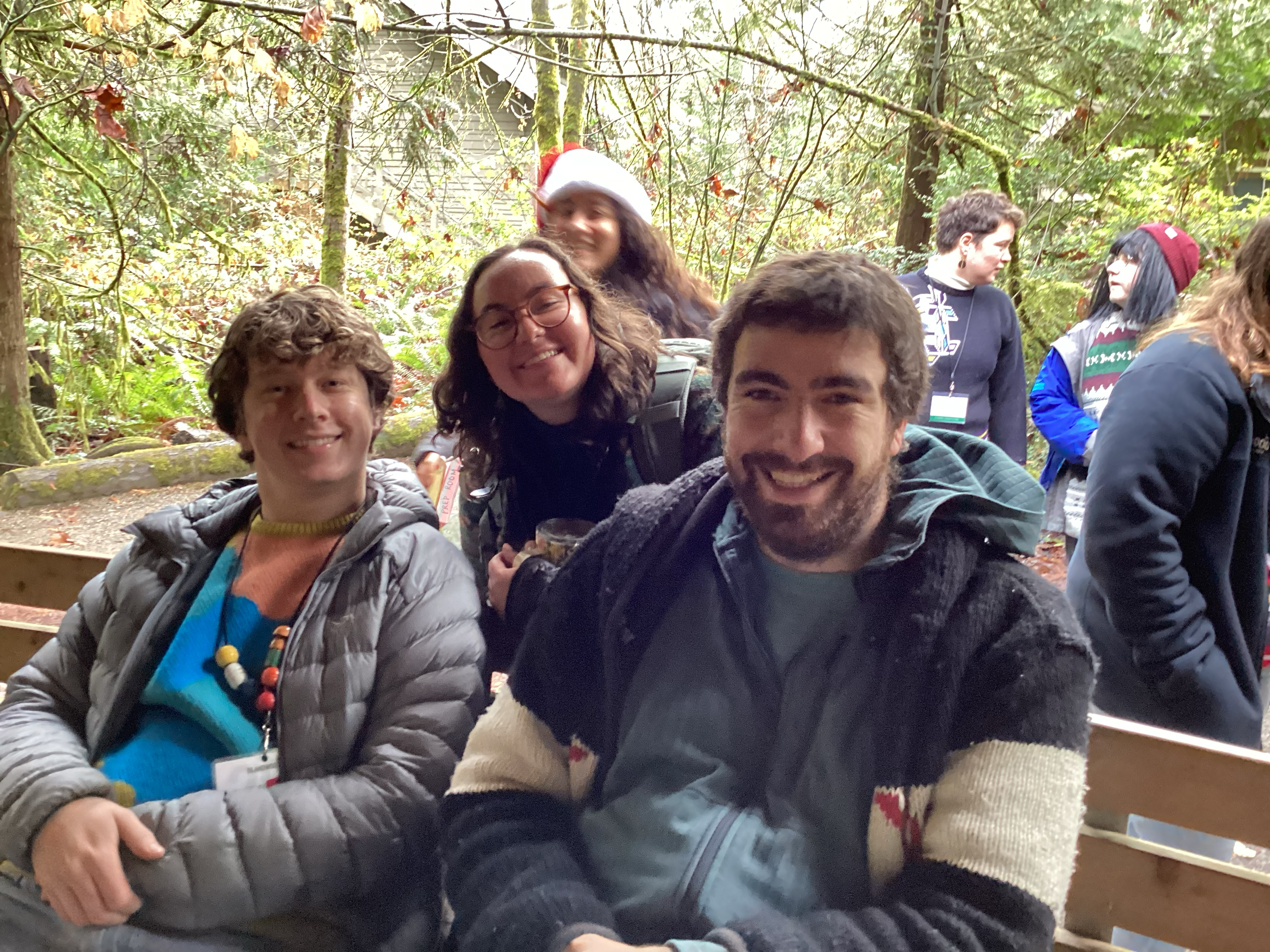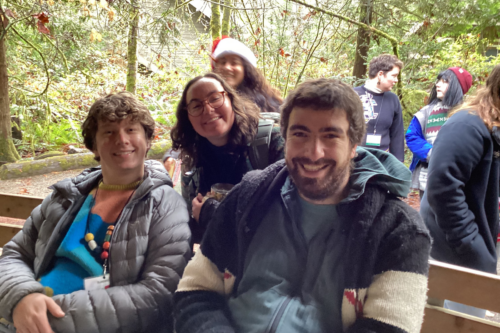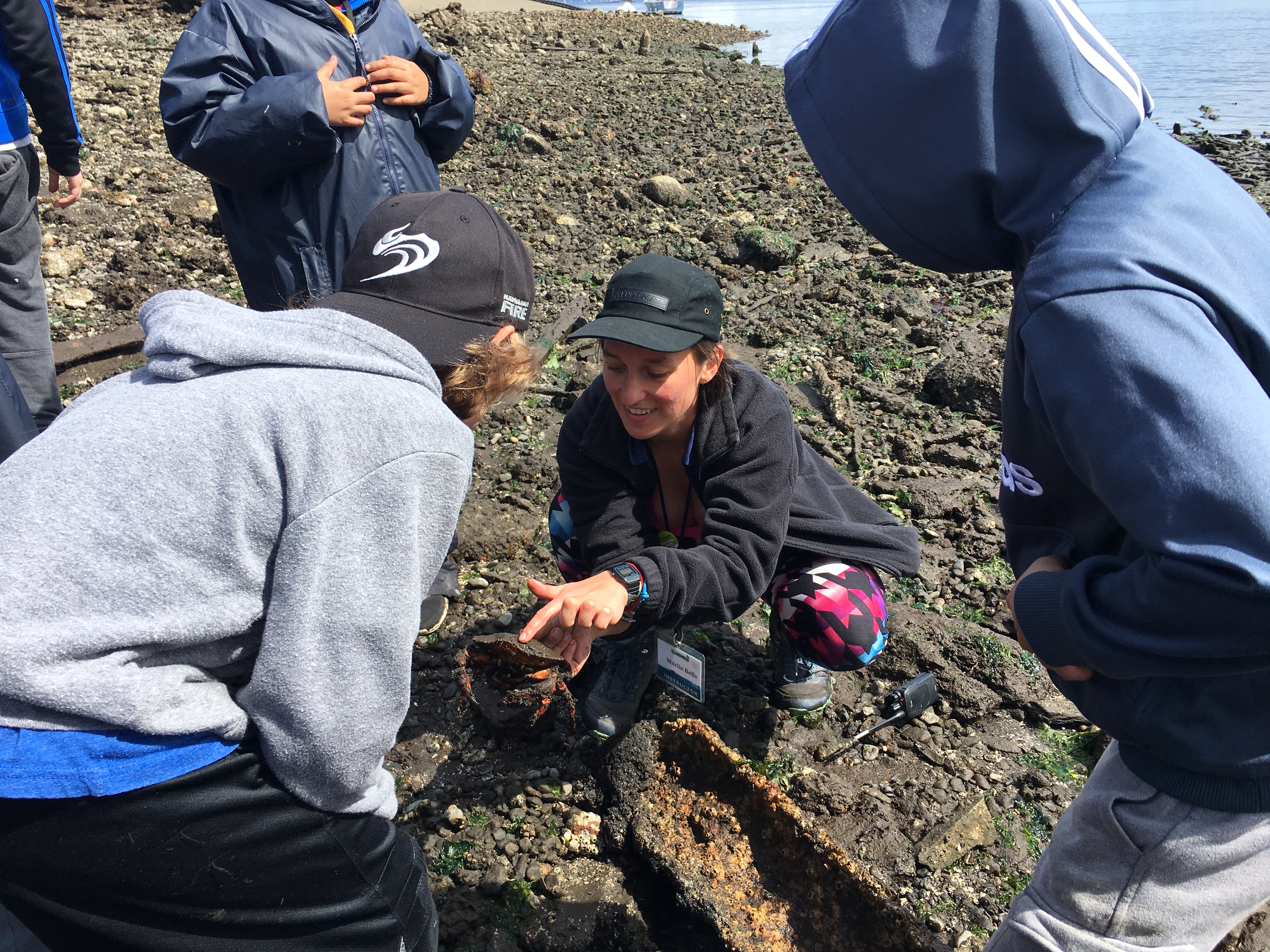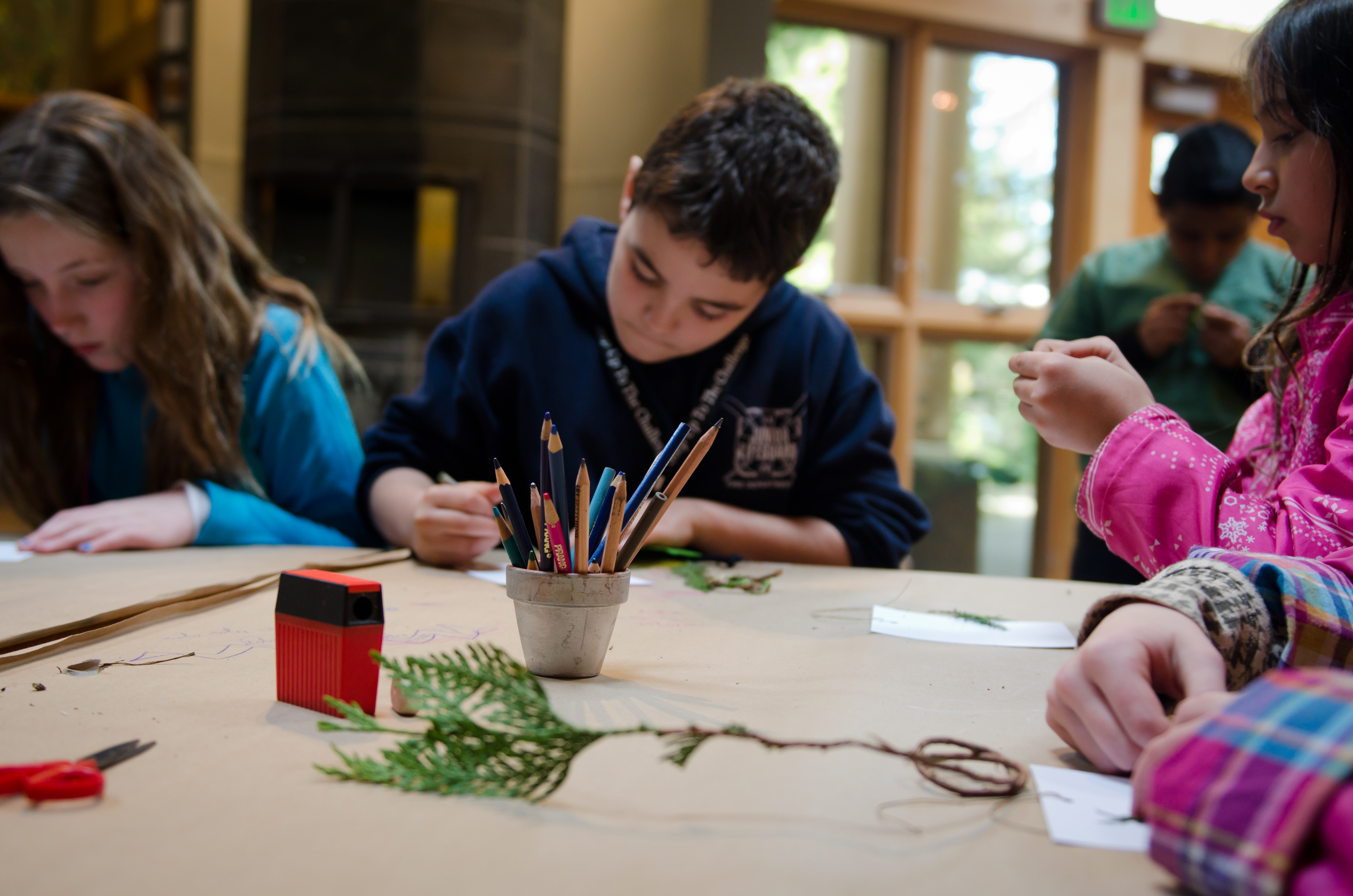IslandWood class of 2023 alum, Amos P., is currently one of the Researchers in Residence…
Amira Rahali-Smith, IslandWood Graduate Program class of 2023, is on campus this week as a Researcher in Residence (RiR). The RiR program is an opportunity for graduate alumni and visiting scholars to conduct research at IslandWood. Amira is currently completing research as part of her Master’s in Education at the University of Washington. She shares about her work below!
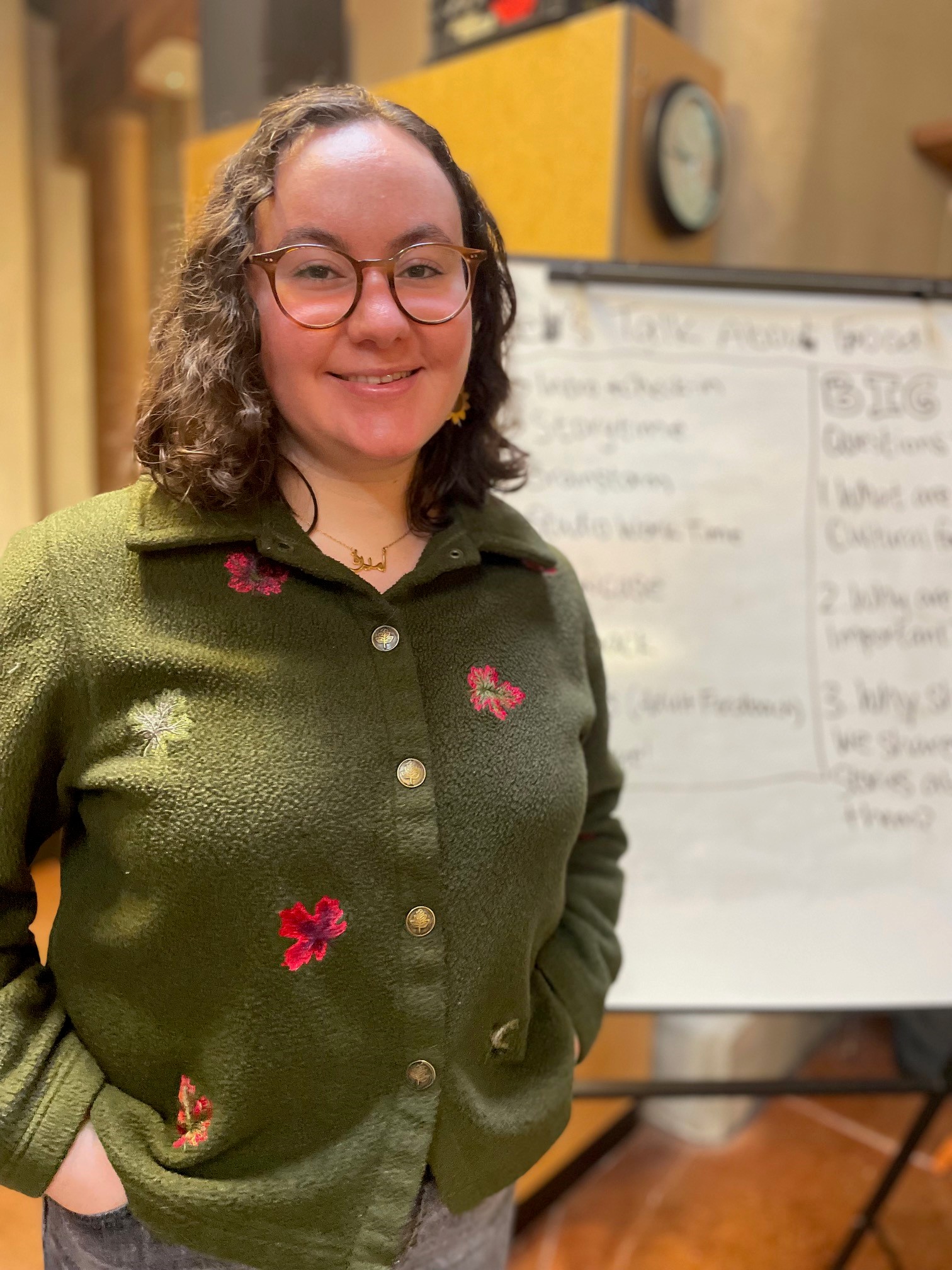
Amira in the IslandWood Art Studio before a session with School Overnight Program students.
My project is titled Celebrating Cultural Foods Through Stories: Identity Formation, Community, and Joy and centers on the impact that cultural foods can have on youth in education spaces. I am observing this impact through the medium of storytelling as celebration to cultivate a positive sense of identity formation, community and joy. My ultimate goal is for cultural foods to become integrated into the culture and curriculum of educational spaces (both formal and informal). For this project, I am using the broad definition of cultural foods as any food or drink that holds memories for a person or group of people.
In order to work towards my goal, I am creating two products in this project. The first is a lesson plan that will be youth-facing and used to offer a safe space for collective storytelling as well as understanding of youth’s changing relationship to their cultural foods. The second product will be a free digital resources toolbox that provides multiple access points for educators and community members who are interested in incorporating cultural food conversations into the educational environments they are a part of, but are unsure of where to start.
In partnership with the Researcher in Residence program, I am hosting sessions for various School Overnight Program (SOP) groups to participate in the lesson plan I have developed. Over the course of two weeks, I will be working with eight groups from five different schools in Washington, totaling over seventy students, fifteen school chaperones, and eight IslandWood Graduate Instructors.
During this lesson, we discuss our big three questions:
- What are cultural foods?
- Why are they important?
- Why should we share stories about them?
Using what we’ve learned from this discussion, students have the opportunity to share a story about one of their cultural foods, through either creating a comic book or acting out a short skit. While students, chaperones, and instructors will be participating in the lesson, they will also have the opportunity to give feedback on the lesson and materials before it is available to the public in the resources toolbox. This is with the hopes that this lesson plan can be engaging and accessible for all students and instructors.
The second product, the free digital resources toolbox, is a compilation of resources that I have used over the years to teach about cultural foods in a variety of education spaces. It will feature lesson plans that I have developed myself, as well as other recommended curriculum, youth and adult-facing books/literature, multimedia resources, ideas for incorporating cultural foods into the culture and curriculum of formal and informal spaces, and resources I developed at IslandWood as a graduate student. By providing these resources I hope to remove access barriers and the label of cultural foods education as a specialization that requires a certain level of experience and/or education. Everyone has a food or drink that holds special memories therefore everyone has a cultural food and is an expert on what their cultural foods mean to them. If you’re interested in receiving access to the toolbox when it’s published, use this form to sign up!
Developing strong, positive, cultural food identities at an early age gives youth the agency to control their own narrative in how they choose to express themselves. By normalizing and celebrating discussions of cultural foods in educational spaces, it reduces the chances of youth being othered or excluded from their educational community. Food othering over time strips youth of their cultural pride and connections to traditional practices. As connections to traditional practices fade, youth are at risk of losing community ties. Food brings a sense of joy and pride to cultures around the world. I hope that my project and resulting products can bring that same sense of joy and pride to the youth and adults who interact with it in educational spaces.
–
Learn more about our graduate program in partnership with the University of Washinton here.

